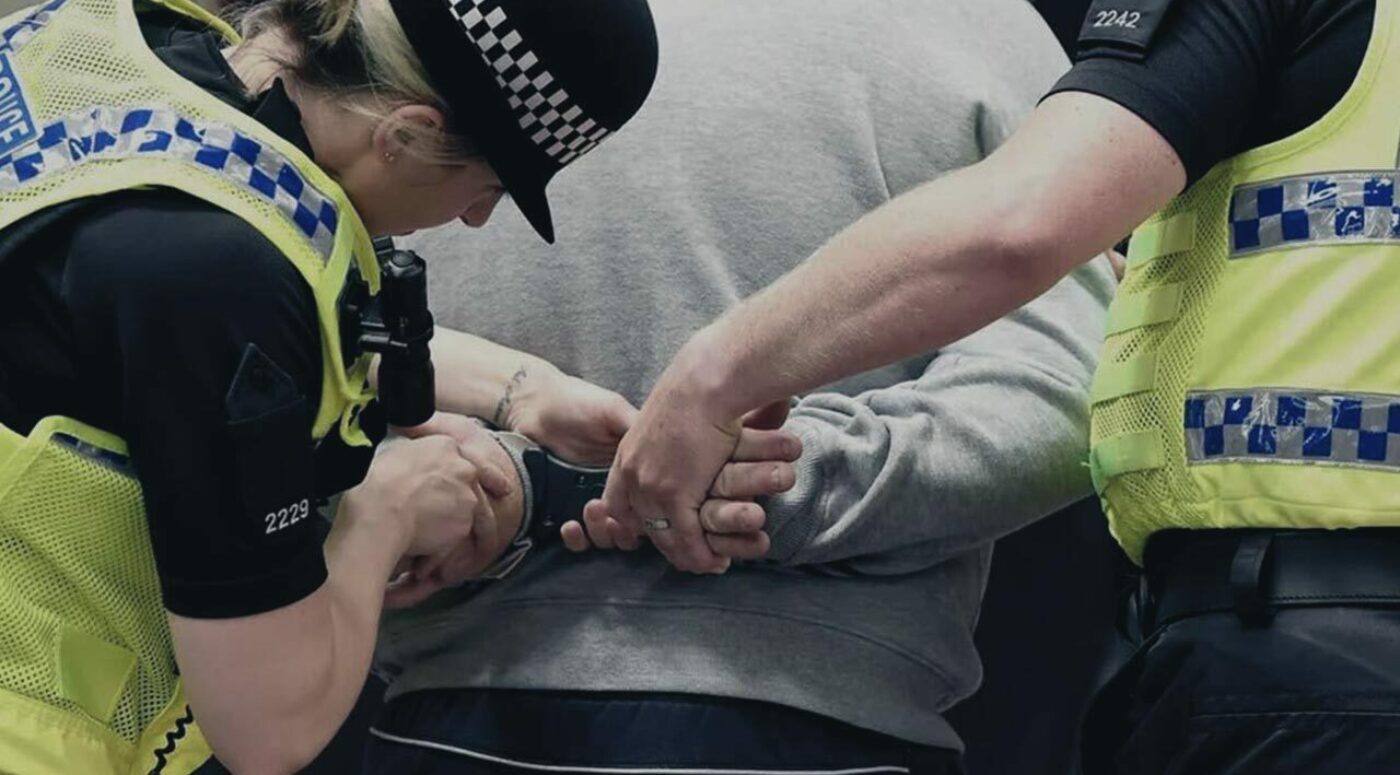

Handling stolen goods is a significant offence under English law, associated with serious legal consequences. It involves possessing, selling, or distributing items that are known to be stolen. This crime can attract severe penalties, including imprisonment. If you or someone you care about is dealing with a charge related to handling stolen goods, it’s crucial to seek legal advice immediately. This article aims to demystify the offence of handling stolen goods, explaining the legal framework, potential sentences, and particularly focusing on the implications for first-time offenders. Understanding the intricacies of this offence and seeking professional guidance are key steps in navigating the legal system.
What is the offence of handling stolen goods in the UK?
In the UK, handling stolen goods is an offence under Section 22 of the Theft Act 1968. It occurs when someone knowingly receives, possesses, or disposes of items that have been stolen. The law requires that the handler knew or believed the goods to be stolen. This offence is based on the principle that possessing or dealing in stolen property perpetuates the market for theft and encourages further criminal activity.
The legal definition of handling stolen goods includes a wide range of activities, such as:
- Possessing stolen items
- Arranging to receive stolen items
- Helping in the retention, removal, disposal, or realisation of stolen goods by or for the benefit of another person
- Arranging or volunteering to do any of these acts
A key aspect of this offence is the requirement of knowledge or belief about the stolen nature of the goods. This means that the person handling the goods must either know they are stolen or believe it to be very likely that they are stolen.
What are some examples of handling stolen goods offences in the UK?
Here are some examples of handling stolen goods offences:
- Purchasing a smartphone at a significantly reduced price, suspecting it might be stolen.
- Selling jewellery at a pawn shop, knowing it was obtained through theft.
- Storing stolen electronic goods in a garage for a friend.
- Transporting stolen artwork for someone else, aware of its illegitimate origin.
- Arranging the sale of stolen car parts through an online marketplace.
- Accepting a high-end watch as a gift, despite suspecting it was obtained through a burglary.
- Helping a friend sell valuable antiques at a flea market, aware that they were taken from a recent house break-in.
- Using construction tools on a personal project, aware that they were stolen from a building site.
- Facilitating the transfer of stolen artwork between a thief and a buyer.
- Receiving and using a high-end camera for personal photography, while being aware that it was likely stolen property.
What happens if you are suspected of committing handling stolen goods in the UK?
If you are suspected of handling stolen goods, the police are very likely to conduct a thorough investigation. This process typically involves:
- Gathering evidence: Police will collect evidence to establish the stolen nature of the goods and your knowledge of this. This can include witness statements, surveillance footage, and forensic evidence. Your electronic devices are likely to be taken away for investigation and analysis. Unfortunately, there is no way of telling when you will get them back or whether, indeed, you ever will.
- Arrest and questioning: If there is sufficient evidence, you may be arrested and taken to a police station for questioning. You have the right to legal representation during this process. Ask for the duty solicitor if for whatever reason you are unable to secure the advice of your chosen solicitor.
- Search and seizure: The police may search your property and seize any goods they believe to be stolen.
- Charging: If there is enough evidence, you could be charged with the offence. The complexity of the case and the nature of the evidence will influence this decision.
- Court proceedings: The case will then proceed to court, where the prosecution must prove you handled stolen goods knowingly. You’ll have the opportunity to present your defence.
Throughout this process, your rights must be respected, and the presumption of innocence applies until proven guilty. Legal representation is crucial at all stages to ensure your rights are protected and to provide guidance on how to proceed. If you are unsure about the legal process and need some assistance, get in touch with an experienced criminal defence solicitor.
What is the sentence for handling stolen goods?
The sentence for handling stolen goods in the UK can vary significantly, depending on the circumstances and severity of the offence. The Theft Act 1968 provides a maximum penalty of 14 years imprisonment for serious cases. Sentencing is influenced by factors like the value of the goods, your role in the crime, and previous convictions.
Aggravating Factors:
- Violent or threatening behaviour during the commission of the crime.
- Use of a weapon or the threat of violence.
- Deliberate destruction of evidence.
- Attempting to sell stolen goods to vulnerable individuals or minors.
- Targeting of particularly vulnerable victims, such as the elderly or disabled.
- Exploitation of a position of trust, such as an employee stealing from their employer.
- A history of involvement in organised crime or a pattern of similar criminal behaviour.
- Obstruction of justice, such as attempting to intimidate witnesses or tampering with evidence.
- Escalation from lesser offences, e.g., progression from petty theft to handling stolen goods.
Mitigating Factors:
- Cooperation with law enforcement, including providing information about the source of the stolen goods.
- A demonstrated effort to make amends, such as returning the stolen items or compensating the victim.
- Lack of criminal intent due to a genuine mistake or misunderstanding.
- Age or mental capacity that impaired the individual’s judgement or understanding of the situation.
- Strong family or community ties that indicate a low risk of reoffending.
- Immediate remorse and a willingness to participate in rehabilitation programs.
- Assistance to the prosecution, such as providing evidence against co-conspirators.
- Provocation or duress that led to the involvement in handling stolen goods.
- Full confession and cooperation in the early stages of the investigation.
Each case is assessed individually, and the court will consider all relevant factors when determining the sentence.
Will I go to prison if it is my first time committing handling stolen goods?
Whether a first-time offender will be sent to prison for the crime of handling stolen goods largely depends on the specifics of the case, including the value of the goods, the offender’s role, and any mitigating or aggravating factors.
The key consideration in such cases is the sentencing guidelines, which provide a framework for judges and magistrates. These guidelines take into account various factors:
- Value of the Stolen Goods: The higher the value of the stolen goods, the more severe the potential sentence. For high-value goods, there is a greater likelihood of a custodial sentence.
- Culpability of the Offender: This considers how involved or responsible the offender was in the crime. A person who knowingly receives high-value goods might be deemed more culpable than someone who unwittingly purchases stolen goods.
- Previous Convictions: As a first-time offender, this may work in the individual’s favour, possibly leading to a more lenient sentence.
- Personal Circumstances: The court will consider personal circumstances such as age, health, and any dependents.
- Plea: An early guilty plea can reduce the sentence.
- Mitigating and Aggravating Factors: Other factors may influence the sentence, including whether the crime was part of a wider criminal activity, or if the offender has shown remorse.
For a first-time offender, especially if the value of the goods is low, and there are mitigating circumstances, it is much less likely that a custodial sentence would be imposed. Instead, the court might consider alternatives like a community order, a fine, or a suspended sentence. However, in cases involving high-value goods or clear intent to profit from criminal activity, even a first-time offender could face imprisonment.
Ultimately, each case is judged on its own merits, and it is critical to remember that while guidelines exist, the final decision rests with the judge or magistrates, based on the evidence and circumstances presented.
Where to get further help
Understanding the legal intricacies of handling stolen goods is crucial for anyone facing this charge. This article has outlined the key aspects of the offence, the legal process, potential sentences, and considerations for first-time offenders. If you need more information or a free consultation, please do not hesitate to get in touch with the team at Stuart Miller Solicitors. Our expertise in criminal law can provide you with the guidance and support needed to navigate this challenging situation. Remember, early legal advice can be pivotal in achieving the best possible outcome in your case.
OUR COMMITMENTS TO YOU:
-
Responsive
A legal expert will consult you within 24 hours of making an enquiry.
-
Empathetic
We will always treat you with trust, understanding and respect.
-
Specialised
Your case will be handled by an expert who specialises in your type of offence.
-
Proactive
We will take early action to end proceedings as soon as it is practically and legally possible to do so.
-
Engaged
You will be kept updated on your case at all times. We will provide a named contact available to answer your questions.
-
Caring
We understand this is a difficult and stressful time for you and your family. Our team will support you every step of the way.
-
Tenacious
We will never give up on your case. We fight tirelessly to get you the best possible outcome.

